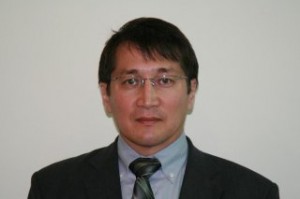ASTANA – Nazarbayev University Professor Dr. Zhumabai Bakenov and his team have developed a lithium-sulfur battery with 10-fold the capacity of a regular battery.
 “The lithium-sulfur battery was invented back in the 1960s. But it was not promoted well and people forgot about it. Nowadays, there is at least one group of scientists in almost every university around the world that is working on this type of battery,” Bakenov noted.
“The lithium-sulfur battery was invented back in the 1960s. But it was not promoted well and people forgot about it. Nowadays, there is at least one group of scientists in almost every university around the world that is working on this type of battery,” Bakenov noted.
“The theoretical capacity of lithium-ion batteries currently being used in cell phones is 150 milliamp-hours per gramme, whereas that of lithium-sulfur batteries is 1670 milliamp-hours per gramme. We have already achieved this capacity, developed it, obtained a patent, reported on it and published our findings,” Bakenov added.
Bakenov stated that the cathode that was used in the battery was the vital issue. “It all comes from the cathode,” he said, adding that there was a persistent “safety problem” that the team had been constantly working on.
Several companies have already showed their interest in the invention according to Nazarbayev University Technological Park (TechnoPark) director Diyaz Baiseitov, but they will have to wait until the research is completed.
“These batteries are eco-friendly because they are based on an aqueous electrolyte. Besides, they have a very long lasting charge, longer than that of any battery currently on the market, whether they are alkaline batteries or lead-acid batteries. They are cheaper to produce. Consumers find this very attractive,” Baiseitov said.
“Take Samruk-Energo, for instance. It’s our renewable energy giant. Storage of generated renewable energy is a big problem now. The energy is generated while the sun is shining during the day or while the wind is blowing, but after that, at night, a good battery is needed. That is why systems for electricity accumulation for electromotives, renewable energy generating devices and large generating facilities are in high demand,” he said.
Bakenov used to work on various research projects in Japan and Canada for almost 10 years before his repatriation back to Kazakhstan in 2011. He holds the 2010 Award of the Ceramic Society of Japan for work on ceramics for energy storage. He is an active member of the Electrochemical Society (ECS USA), the Electrochemical Society of Japan (ECS-J) and the American Institute of Chemical Engineers (AIChE).
He is now working on advanced techniques for high-energy density materials for renewable energy storage, advanced rechargeable batteries for energy storage and grid connections to renewable energy sources, innovative rechargeable aqueous lithium-ion batteries for large scale energy storage, dense high energy ecologically-friendly batteries for grid connection to renewable sources and electric vehicles and novel collagen and hydroxyapatite scaffolds for the repair of age-related bone and cartilage defects.

